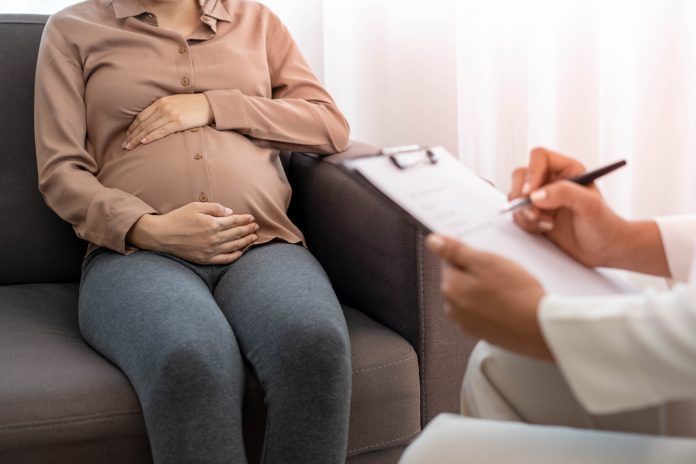A study finds that perinatal women are increasingly using cannabis due to the absence of consistent counselling from healthcare professionals
Perinatal women, or who are pregnant or breastfeeding, are getting information on using cannabis from the retail marijuana workers known as budtenders. According to the NHS, perinatal mental illness affects up to 20% of new and expectant mums and covers a wide range of conditions.
Both healthcare providers and budtenders distinguished that perinatal women mostly use cannabis to relieve nausea, anxiety, pain, and stress rather than for recreation.
Cannabis use among pregnant women has increased sharply, with past-month use nearly doubling to 7% and daily or near-daily use tripling to 3.4% from 2002 to 2017, a previous study found.
The study, led by Celestina Barbosa-Leiker, vice-chancellor for research at Washington State University Health Sciences, interviewed 10 healthcare professionals, primarily nurses, and 10 budtenders in Washington state about their opinions and perceptions on perinatal cannabis use.
“To determine the risks and benefits of perinatal cannabis use”
While recreational marijuana has been legal in the state since 2013, the study noted there is still a stigma from healthcare providers when patients consult them about use of cannabis.
Healthcare providers, however, said they had a negative opinion of the effects of cannabis use among those patients. While they said they try to be non-judgmental in talking to their patients, they follow national guidelines in advising patients to refrain from using cannabis during pregnancy and while breastfeeding, like how they would advise about alcohol and cigarettes.
Budtenders, adversely, had a much more encouraging view of cannabis use during pregnancy, recognizing marijuana as a natural substance that is safer than perinatal alcohol or cigarette use.
Budtenders frequently also followed a harm-reduction approach, recommending lower-THC products for pregnant and breastfeeding customers. Healthcare providers were much more binary; they didn’t perceive cannabis use on a spectrum, but rather as a choice between no use, or very heavy use.
A patient who feels stigmatized by her healthcare provider or whose provider doesn’t have any information or guidance on cannabis use might turn to a budtender for advice, Barbosa-Leiker noted.
With sympathy for the budtenders, the study noticed pregnant women are coming to them for guidance. One budtender participant said they must rely on “stoner science” of largely unverified claims, or Google searches, to help those customers.
It was agreed that budtenders also require training on cannabis, and request training on how to best help perinatal customers.
“There should be training in how to ask the right questions about cannabis the right way”
It was further acknowledged that education for healthcare providers and for budtenders hasn’t been enough. Both groups in the study, published in The American Journal of Drug and Alcohol Abuse, said they wanted more information on assisting pregnant and nursing women about their cannabis use.
Barbosa-Leiker added: “We need to use all approaches and all people in the patient’s life to help them, there is such limited research with budtenders, but they need to be part of this conversation because they are seen as trusted sources by their customers and our patients.
“We need to engage with them because that’s where the information is being disseminated. With that additional training, I think those conversations can happen in a more non-judgmental way, in a harm-reduction way, and hopefully trust will be built.”
The best scenario found was for women who use cannabis to feel as comfortable talking to their healthcare provider about that choice as they do with their budtender.












Thanks for sharing blog information about A sharp rise in cannabis use in perinatal women…